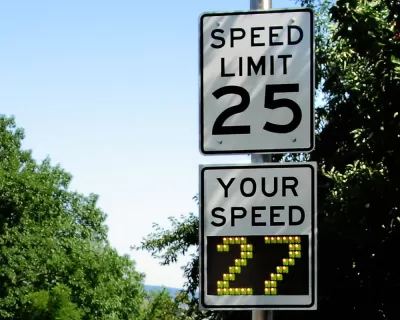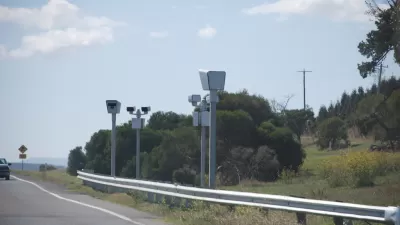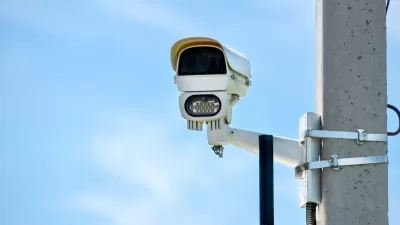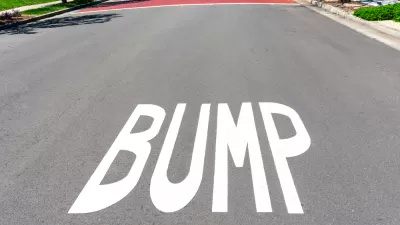The state of Virginia's new traffic safety program will focus on speeding as fatal factor in automobile collisions and could eventually provide a model for similar programs around the country.

"To reduce the danger of driving, Virginia state officials are now planning a new comprehensive road safety campaign to slow down drivers," reports Wyatt Gordon. "However, controversies around equitable enforcement and the political unpopularity of speeding cameras means [sic] that no one can say at the moment what the final program will look like when details are debuted this fall."
"The coming anti-speeding pilot program represents a multi-state, multi-organization effort in cooperation with Maryland, the Governors Highway Safety Association, the Insurance Institute for Highway Safety and the National Road Safety Foundation," adds Gordon.
Russ Rader, senior vice president for communications at the IIHS, is quoted in the article discussing the neglected factor of speed in addressing traffic safety. The new program is intended as a response to calls from advocates to address the elephant in the traffic safety room.
According to Gordon, the program will focus on three "Es"—enforcement, education and engineering—and will "build on the success of the Click It or Ticket campaign that coincided with a national 20 percent increase in seat belt usage over a 16-year period."
The program will also be a chance to innovate in its approach to equity—with the new attention paid to disproportionate impacts of traffic enforcement for BIPOC Americans during the pandemic. According to Gordon's explanation automated speed enforcement might be proposed as a solution to the tendency of police to target BIPOC with higher and more violent levels of enforcement. Automated speed enforcement is usually controversial and is also outright banned by many state and local governments. The case for automated technology also isn't as universally accepted as a tool to reduce discrimination as one might assume.
John Saunders, DMV’s director of highway safety, is quoted in the article saying the program could respond to controversies surrounding automated traffic safety technology by placing new priority on "safety systems."
"We need to do everything we can to protect the driver and other vulnerable road users because folks are always going to make mistakes," says Saunders in the article.
FULL STORY: Virginia aims to slow down drivers. Will it work?

Planetizen Federal Action Tracker
A weekly monitor of how Trump’s orders and actions are impacting planners and planning in America.

Congressman Proposes Bill to Rename DC Metro “Trump Train”
The Make Autorail Great Again Act would withhold federal funding to the system until the Washington Metropolitan Area Transit Authority (WMATA), rebrands as the Washington Metropolitan Authority for Greater Access (WMAGA).

DARTSpace Platform Streamlines Dallas TOD Application Process
The Dallas transit agency hopes a shorter permitting timeline will boost transit-oriented development around rail stations.

Affordable Housing Finance 101
The financial intricacies involved in building affordable housing can be difficult to understand. This explainer breaks down the foundational concepts.

San Francisco's School District Spent $105M To Build Affordable Housing for Teachers — And That's Just the Beginning
SFUSD joins a growing list of school districts using their land holdings to address housing affordability challenges faced by their own employees.

Car-Centric LA Suburb Looks to a Train-Oriented Future
City leaders in Rancho Cucamonga, the future western terminus of the Brightline West rail line to Las Vegas, want to reimagine the city as a transit-oriented, pedestrian-friendly community.
Urban Design for Planners 1: Software Tools
This six-course series explores essential urban design concepts using open source software and equips planners with the tools they need to participate fully in the urban design process.
Planning for Universal Design
Learn the tools for implementing Universal Design in planning regulations.
Municipality of Princeton
Roanoke Valley-Alleghany Regional Commission
City of Mt Shasta
City of Camden Redevelopment Agency
City of Astoria
Transportation Research & Education Center (TREC) at Portland State University
US High Speed Rail Association
City of Camden Redevelopment Agency
Municipality of Princeton (NJ)





























